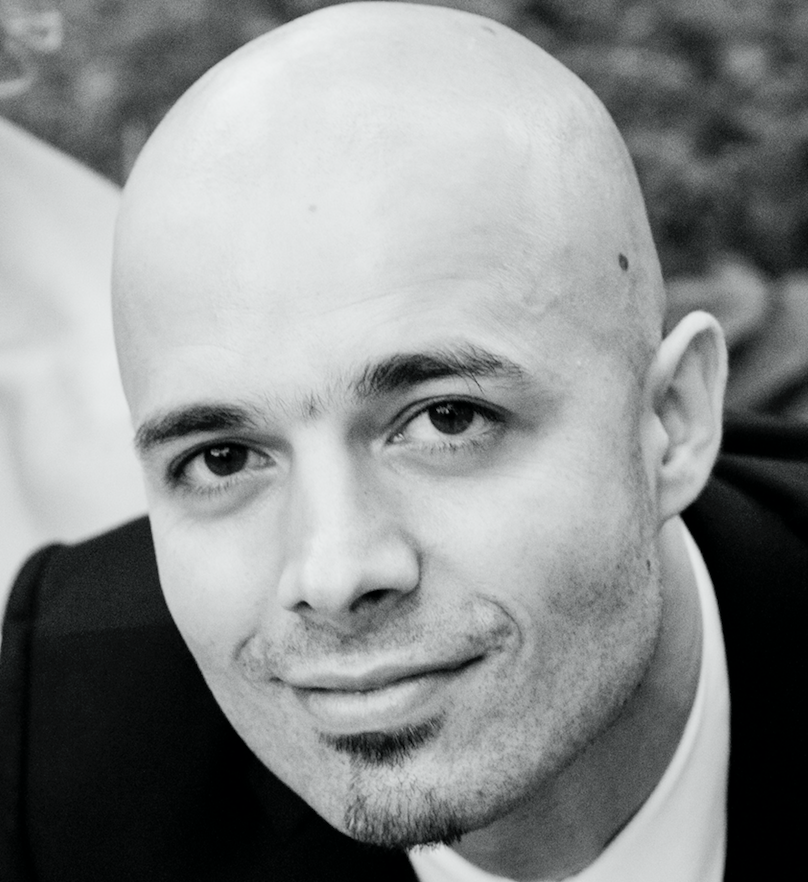How to Develop Good Habits. Part 2: Replace
This is a follow up post to How to Develop Good Habits. Part 1: Understand.
In Part 1, I explained that to change bad habits, you must first identify the habits you want to change and the "opposite" habits that help you become more successful. The reason for this is simple - if you just tell yourself you'll change, you most often won't change. This is not because of the lack of desire but rather due to not knowing what actions to take so old habits go away and new ones stick.
The plan of action that has the highest chance of success involves replacing an old habit with a new one. This is the easiest (though it may still prove difficult) way to rewire your brain.
If you're a not-so-proud owner of a bad habit, the patterns and actions associated with this habit are wired into your brain. This means that whenever you "do" the habit the routine you follow is automated. Let me exemplify.
While I have been tobacco-free for more than a decade, I used to smoke one pack of cigarettes a day for 10 years. This is why I almost never ate breakfast in my twenties. I replaced it with "a coffee and a cigarette." I'd put the pot on to brew, put my contact lenses in, pour the coffee, head to the laundry room of the Chicago apartment my wife and I lived in at the time, and light up. Every. Single. Day.
I'd be lying if I told you I hated it.
No. I loved it! In fact, the memory is so well-encoded in my brain that I can imagine the taste of that first morning drag to this day. DOPAMINE.
The point is that my morning "coffee and cigarette" routine was so strongly wired into my brain, I was on autopilot. This may be akin to your morning commute to work. You no longer pay attention to the streets, but rather, your mind is elsewhere - listening to audio, in conversation etc.
I tried quitting smoking several times before I was finally successful. It didn't work. I did not know it then but I know now that it was because I tried to "will it" and did not create an effective plan to rewire my brain.
Rewiring Your Brain
If you're a little bit scared right now you should be. While lobotomy proved to impair patients' intellectual and emotional abilities and was eventually deemed less than effective or humane, we are not that far off from a time when scientists will be able to use technology to change your brain's neural networks. UCLA doctors are already seeing some success using magnetic waves to rewire brains of people with depression.
But fear not - the things you need to do to rewire habits do not involve surgeries or exposure to radiation.
What you need to do is come up with a plan for what to do when the old bad habit starts creeping back into your life.
I eventually quit smoking on April 1st, 2007 by playing guitar. A lot. My plan was simple: Every time I had a cigarette craving, I would pick up my guitar and play until I stopped thinking about smoking. And it worked!
There are three reasons for why it worked.
First, I did something with my hands instead of holding a cigarette. My present understanding of this is that doing this slowly rewired my brain's networks that associated my sense of touch and smoking. This was the physical aspect of the habit.
Second, playing guitar is an enjoyable activity for me. Just as I loved smoking, I loved playing guitar. It was easier to replace smoking with playing than it would have been to replace it with, say, mowing the lawn. My brain still received the dopamine reward it craved but it happened in a much healthier way.
Third, playing an instrument is a highly challenging cognitive activity. It requires focus, hand-eye coordination, rhythm, receiving feedback (listening), applying feedback (adjustment of hand positions etc.), constant processing of the song structure, and more. If I just settled on turning the TV on every time I got the urge to smoke I'd be smoking till this day (and likely watching too much TV while at it).
In a similar way, I replaced my online poker addiction with writing.
Thus, to change a bad habit, you need to replace it with a productive habit that is hopefully rewarding but definitely highly engaging. Then, you must do it repeatedly until your brain is rewired.
And don't believe anyone who tells you it will take two weeks, a month, or 21 days. These would-be-experts are in the business of assigning arbitrary numbers to the methods they fashion themselves. While research shows that developing new habits is tied to the frequency of exposure and the intensity of exposure, the time it takes to change habits greatly varies. The more you do it and the more engaged you are in it during each exposure, the faster you will rewire your brain for the new, more advantageous habit but it's impossible to know exactly how long it will take.
Identify and understand your bad habits first. Then, create a plan that helps you replace them with good habits.
This is how I explain it to the teens I teach. I openly discuss my past tobacco and poker addictions. I find being honest (and flawed) helps when working with adolescents. I encourage you to do the same with yours.
Check out Lesson 21 - Changing Your Habits I use with my students and include in my new book Crush School Student Guide: Learn Faster, Study Smarter, Remember More, and Make School Easier below.
The book contains 65 unique lessons such as setting academic goals, understanding and using the brain the way it evolved to learn, completing projects, studying for tests, improving reading speed and memory etc.
I will share the full Table of Contents with you on Sunday The book becomes available on Amazon tomorrow. You can preorder it here.
You can download the 2 Habits Lessons to use with your teens FREE here.
Thank you,
Oskar
You have the power to change lives. Use it often so they can change the world.
Sources:
UCLA doctors use magnetic stimulation to ‘rewire’ the brain for people with depression. http://newsroom.ucla.edu/releases/tms-depression-ucla
How are habits formed: Modelling habit formation in the real world. http://repositorio.ispa.pt/bitstream/10400.12/3364/1/IJSP_998-1009.pdf
This column will change your life: How long does it really take to change a habit? https://www.theguardian.com/lifeandstyle/2009/oct/10/change-your-life-habit-28-day-rule
Hi! I'm Oskar.
I teach, write, speak, rant to make learning better.
BOOKS & TOOLS
- December 2025 1
- September 2025 2
- August 2025 5
- July 2025 4
- June 2025 2
- August 2024 2
- July 2024 2
- June 2024 1
- October 2023 1
- September 2023 3
- August 2023 6
- July 2023 6
- July 2022 2
- June 2022 1
- November 2020 3
- October 2020 3
- April 2020 1
- March 2020 5
- July 2019 1
- June 2019 1
- April 2019 1
- January 2019 1
- November 2018 3
- October 2018 2
- September 2018 1
- August 2018 8
- July 2018 11
- June 2018 4
- May 2018 5
- April 2018 2
- March 2018 4
- February 2018 5
- January 2018 3
- December 2017 1
- November 2017 5
- October 2017 7
- September 2017 6
- August 2017 5
- July 2017 3
- June 2017 10
- May 2017 7
- April 2017 7
- March 2017 15
- February 2017 12
- January 2017 13
- December 2016 15
- November 2016 8
- October 2016 7
- September 2016 12
- August 2016 14
- July 2016 10
- June 2016 13
- May 2016 10
- April 2016 8
- March 2016 5
- February 2016 7
- January 2016 6
- December 2015 5
- November 2015 8
- October 2015 2






